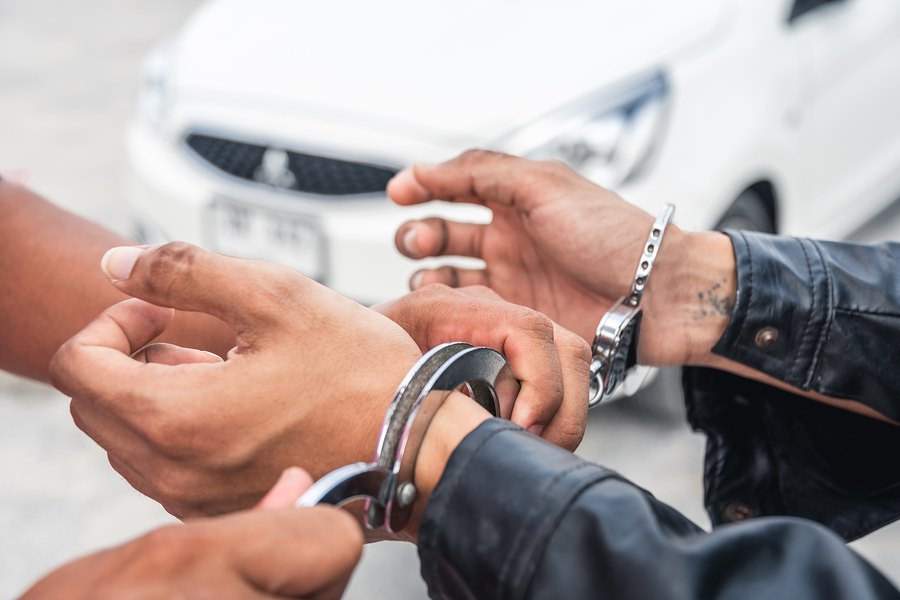Maybe you weren’t expecting it, or you have no idea why. All you know is that you’ve been arrested. Do you know what to do next?

Handling The Arrest
It’s very possible that you are being wrongly arrested, but you do not have the right to resist arrest.
The first thing to do is to comply with the officer’s request—otherwise, you will also be charged with something else, resisting arrest. If you continue to fight the police officer, you could find yourself with even more charges.
In fact, Maine state law §751-B passed in 2009 specifically prohibits citizens from resisting arrest, interfering with a police officer in the arrest of someone else, or assaulting a police officer during an arrest. Recently, two police officers in Milo, Maine were assaulted in two separate incidents while making arrests. This prompted the police chief in Milo post a request on Facebook for people to stop resisting arrest. If you are wrongfully arrested, you can defend yourself in court.
Your Rights
Yes, you do have rights under the US and Maine state constitutions. They include:
- The right to remain silent. You heard this when the officer read your “Miranda rights,” and it’s very true—anything you say can and will be used against you in court. Therefore, you should politely assert this right by saying so, requesting to have an attorney present, and saying nothing else. If you continue speaking, the police will assume that you have waived your right to silence, and anything you say will become evidence in the case against you. Note that you cannot be punished for not answering questions, but you may be asked for identification.
- The right to have an attorney present. You have the right to an attorney, and you should state this to the police officer immediately. Do not speak to the officers without one present.
- If law enforcement comes to search your home, they must have a warrant. You have the right to inspect the warrant before allowing the search. They are only allowed to search specific areas and for specific items. Again, you should state to the officers that you are exercising your right to remain silent, and will answer questions with an attorney present.
Court
You may be taken directly to court, or appear in court within a few days of the arrest. The court will then explain the charges and your rights. If you cannot afford an attorney the court will appoint one. Maine does not have public defenders, so a private attorney that works with the court system will be assigned to your case.
After your initial court appearance, the state of Maine is required to provide you and your attorney with what’s called “discovery.” This is the evidence they are using to charge you. At this point, you and your attorney must carefully review the evidence and begin building your defense. You will then have 21 days to file motions to protect your rights and request a jury trial. Your attorney will also begin dealing with the district attorney on the outcome of your case. Cases rarely make it to trial unless you decline the DA’s offer of a guilty plea.
It’s important to work with an attorney who understands the criminal court system, and who will offer as much mitigation evidence as possible.
The ACLU lists additional information on handling police encounters, and defending your rights if you are arrested.
Peter W. Evans
If you or a loved one have been arrested in Maine, you need an experienced Maine defense lawyer with strong skills to give you the best chance at trial. Every case is different, and finding someone who has the skills and experience to handle your Maine criminal case.
Call Peter W. Evans today (207) 747-5114 today, or contact us online to schedule an appointment for your consultation.





